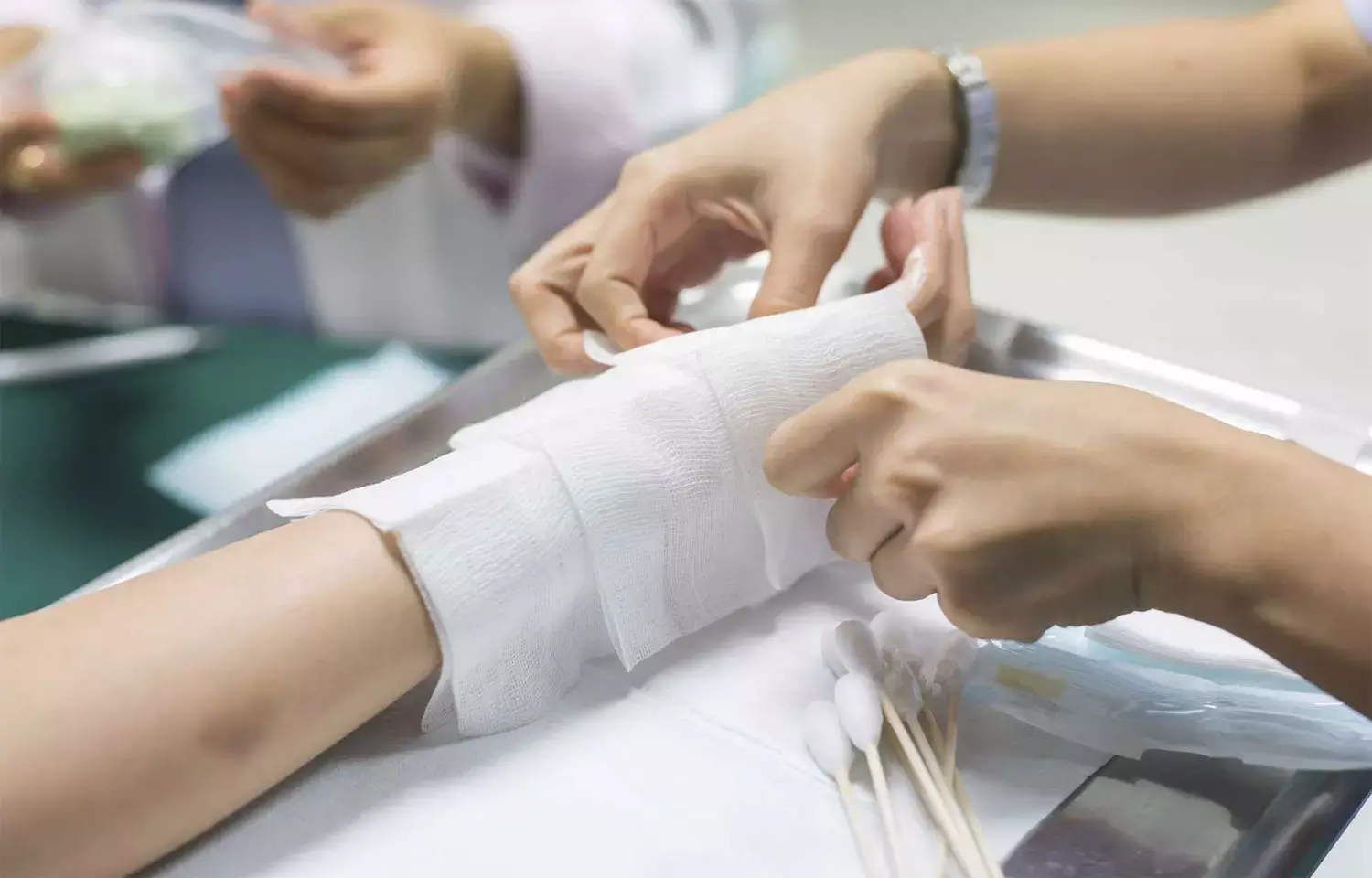- Home
- Medical news & Guidelines
- Anesthesiology
- Cardiology and CTVS
- Critical Care
- Dentistry
- Dermatology
- Diabetes and Endocrinology
- ENT
- Gastroenterology
- Medicine
- Nephrology
- Neurology
- Obstretics-Gynaecology
- Oncology
- Ophthalmology
- Orthopaedics
- Pediatrics-Neonatology
- Psychiatry
- Pulmonology
- Radiology
- Surgery
- Urology
- Laboratory Medicine
- Diet
- Nursing
- Paramedical
- Physiotherapy
- Health news
- Fact Check
- Bone Health Fact Check
- Brain Health Fact Check
- Cancer Related Fact Check
- Child Care Fact Check
- Dental and oral health fact check
- Diabetes and metabolic health fact check
- Diet and Nutrition Fact Check
- Eye and ENT Care Fact Check
- Fitness fact check
- Gut health fact check
- Heart health fact check
- Kidney health fact check
- Medical education fact check
- Men's health fact check
- Respiratory fact check
- Skin and hair care fact check
- Vaccine and Immunization fact check
- Women's health fact check
- AYUSH
- State News
- Andaman and Nicobar Islands
- Andhra Pradesh
- Arunachal Pradesh
- Assam
- Bihar
- Chandigarh
- Chattisgarh
- Dadra and Nagar Haveli
- Daman and Diu
- Delhi
- Goa
- Gujarat
- Haryana
- Himachal Pradesh
- Jammu & Kashmir
- Jharkhand
- Karnataka
- Kerala
- Ladakh
- Lakshadweep
- Madhya Pradesh
- Maharashtra
- Manipur
- Meghalaya
- Mizoram
- Nagaland
- Odisha
- Puducherry
- Punjab
- Rajasthan
- Sikkim
- Tamil Nadu
- Telangana
- Tripura
- Uttar Pradesh
- Uttrakhand
- West Bengal
- Medical Education
- Industry
Hypoglycemia in burn patients associated with longer ICU stay: Study

USA: Hypoglycemic episodes or incidents of sudden fall of blood sugar in hospitalized burn patients are associated with a longer total and ICU length-of-stay, finds a recent study in the Journal of Critical Care. However, thhis low blood sugar was not associated with a higher mortality risk
The clinical data on hypoglycemia (low blood sugar) is based largely on surgical and medical intensive care units (ICU) and not burn ICUs. Haig A.Yenikomshian, Keck School of Medicine of the University of Southern California, Los Angeles, CA, USA, and colleagues, therefore, set out to determine the same.
For this purpose, the researchers retrospectively reviewed all adult patients admitted to their burn center from 2015 to 2019. Burn characteristics and patient demographics were recorded.
The primary outcome was mortality, and secondary outcomes were total length-of-stay and intensive care unit length-of-stay. All patients experiencing at least one hypoglycemic episode were compared to patients who did not experience hypoglycemia.
Key findings of the study include:
- There were 914 patients with acute burns admitted during the study period, 33 of which (4%) experienced hypoglycemic episodes. Of these, 17 patients (52%) experienced a single hypoglycemic episode, while the remainder experienced multiple hypoglycemic episodes.
- Patients with one or more hypoglycemic events were matched to non-hypoglycemic controls using propensity matching. Patients that experienced hypoglycemia had significantly less TBSA involvement (5% vs. 13%), higher prevalence of diabetes (48% vs. 18%), higher mortality (18% vs. 7%), longer total length-of-stay (22 vs. 8 days), and longer ICU length-of-stay (12 vs. 0 days).
- A single hypoglycemic episode was associated with prolonged total (IRR = 1.91) and ICU length-of-stay (IRR = 3.86).
- Hypoglycemia was not associated with higher mortality in the survival analysis.
Also Read: Severe Hypoglycemia may Indicate Future Cardiovascular Risk in Older Adults
Reference:
The study titled, "Hypoglycemic episodes predict length of stay in patients with acute burns," is published in the Journal of Critical Care.
DOI: https://www.sciencedirect.com/science/article/abs/pii/S0883944121000514#!
Dr Kamal Kant Kohli-MBBS, DTCD- a chest specialist with more than 30 years of practice and a flair for writing clinical articles, Dr Kamal Kant Kohli joined Medical Dialogues as a Chief Editor of Medical News. Besides writing articles, as an editor, he proofreads and verifies all the medical content published on Medical Dialogues including those coming from journals, studies,medical conferences,guidelines etc. Email: drkohli@medicaldialogues.in. Contact no. 011-43720751


